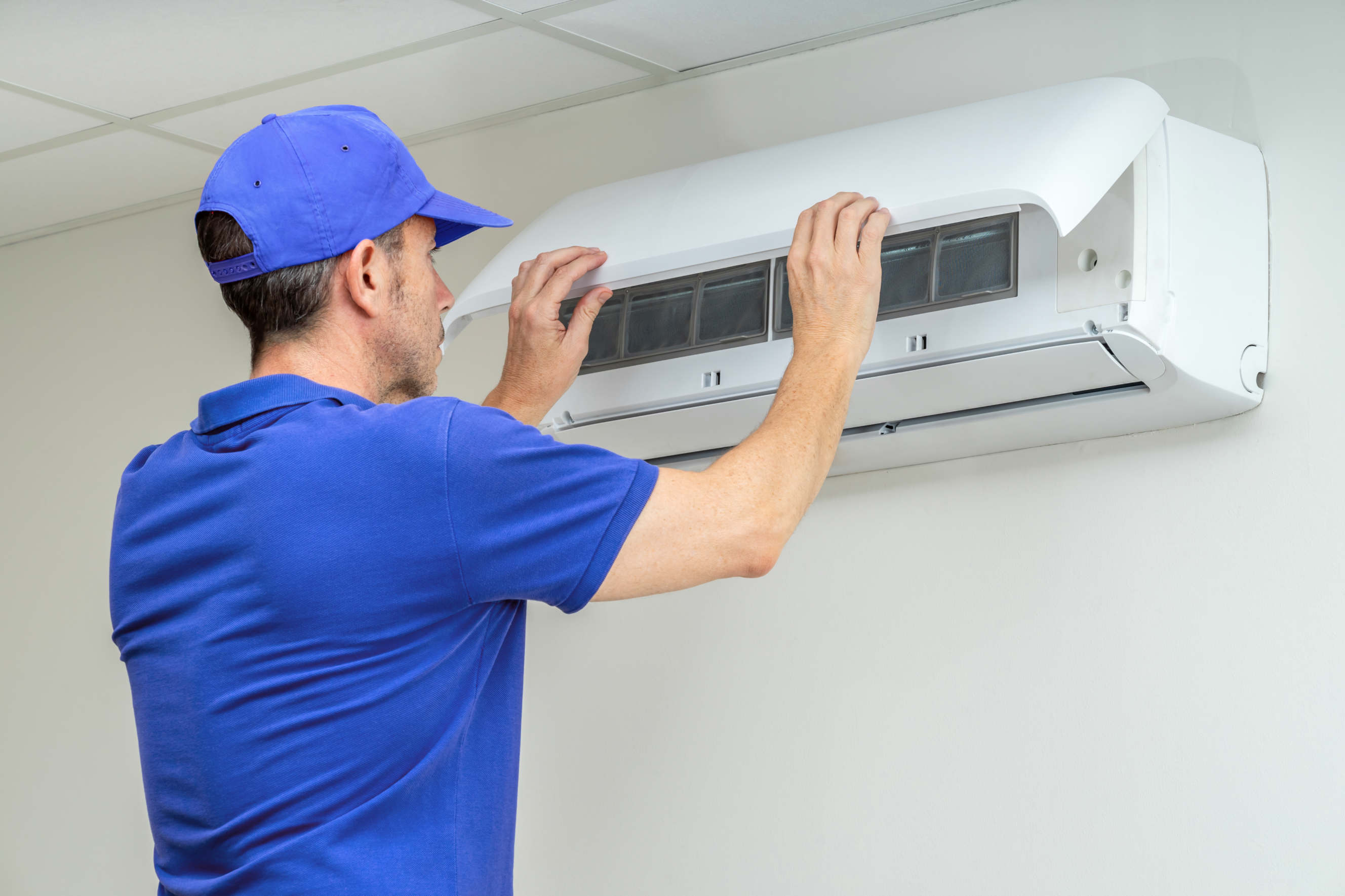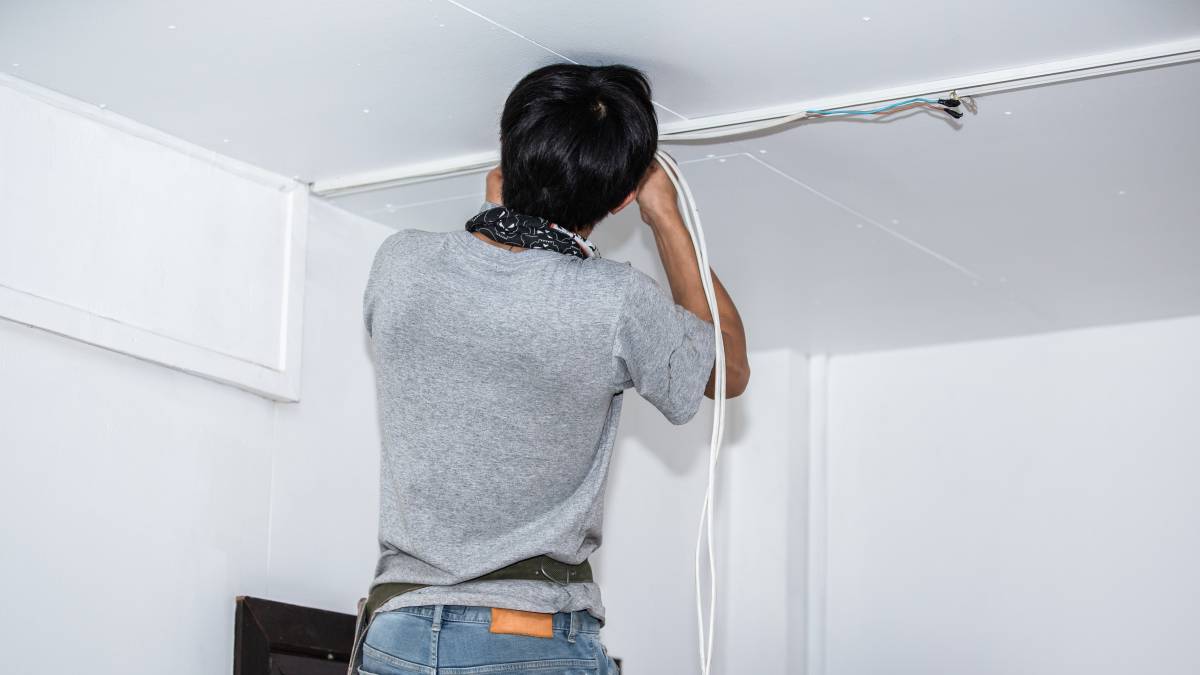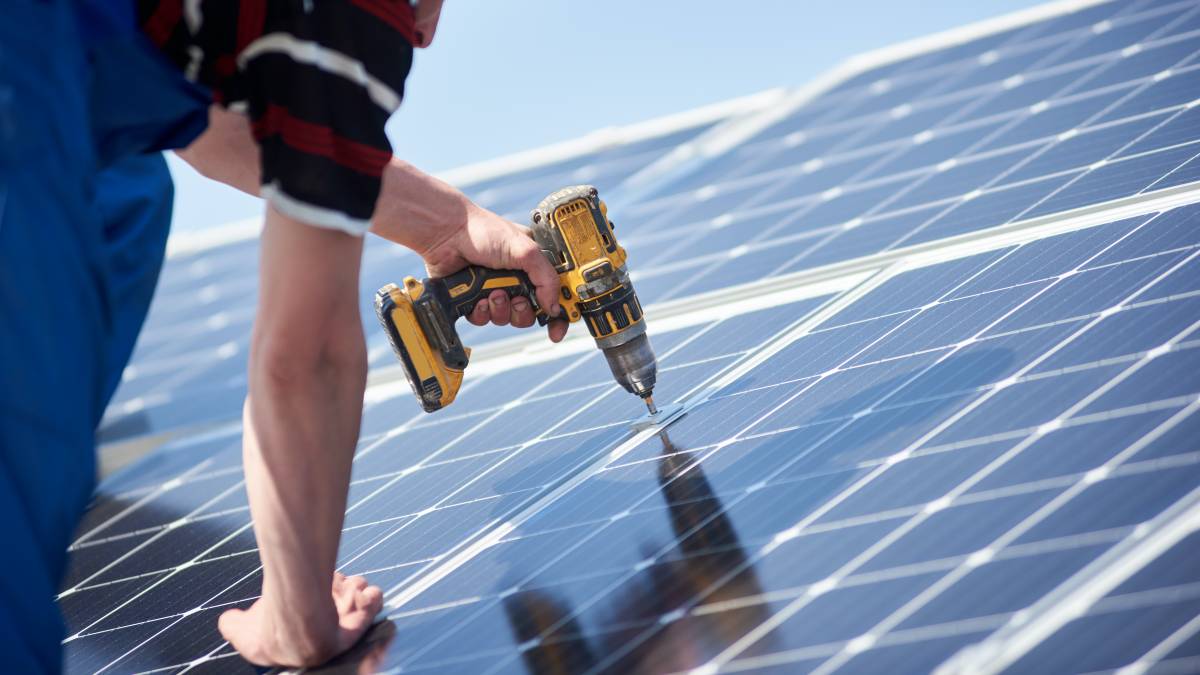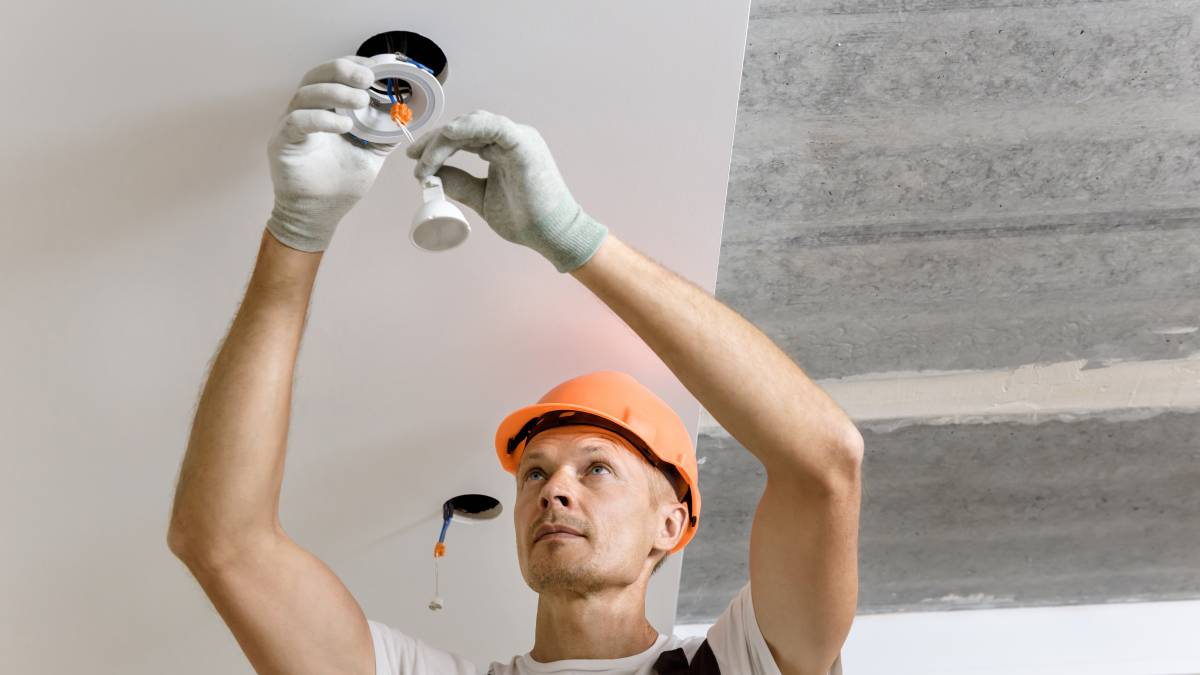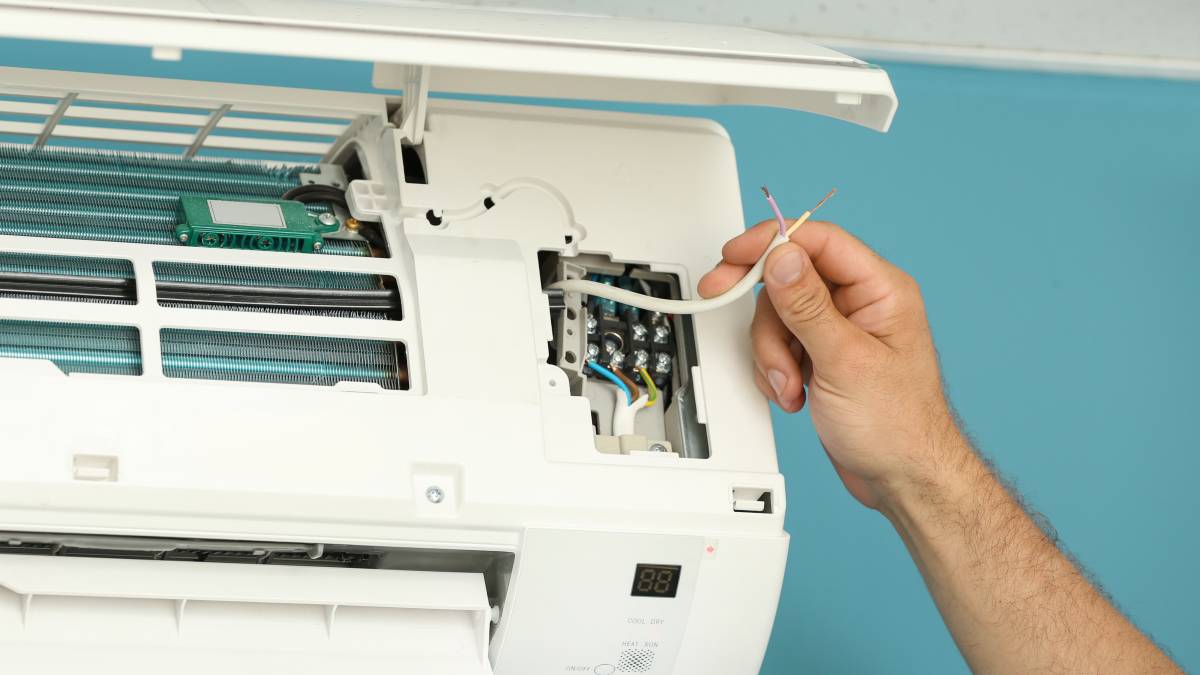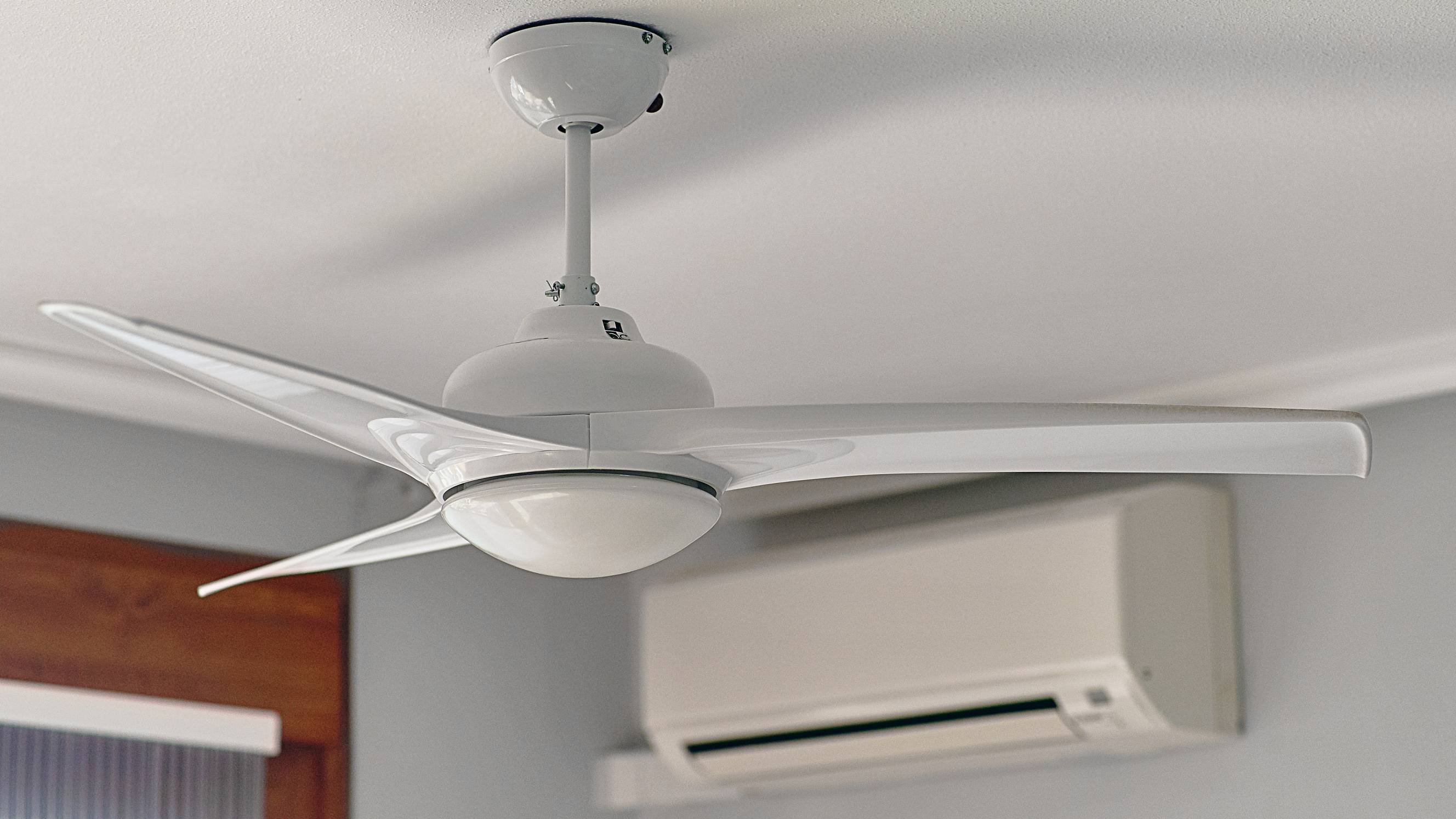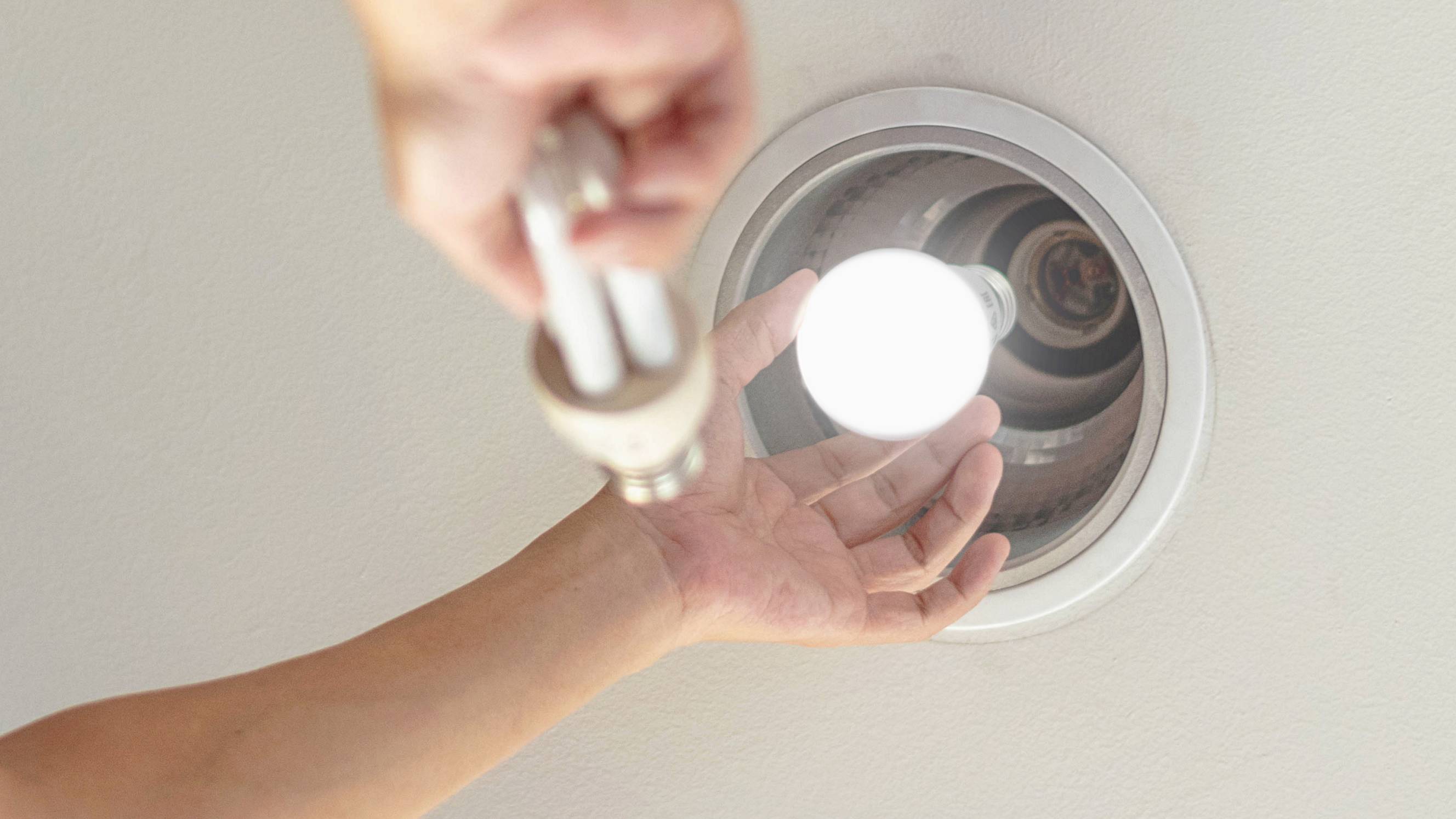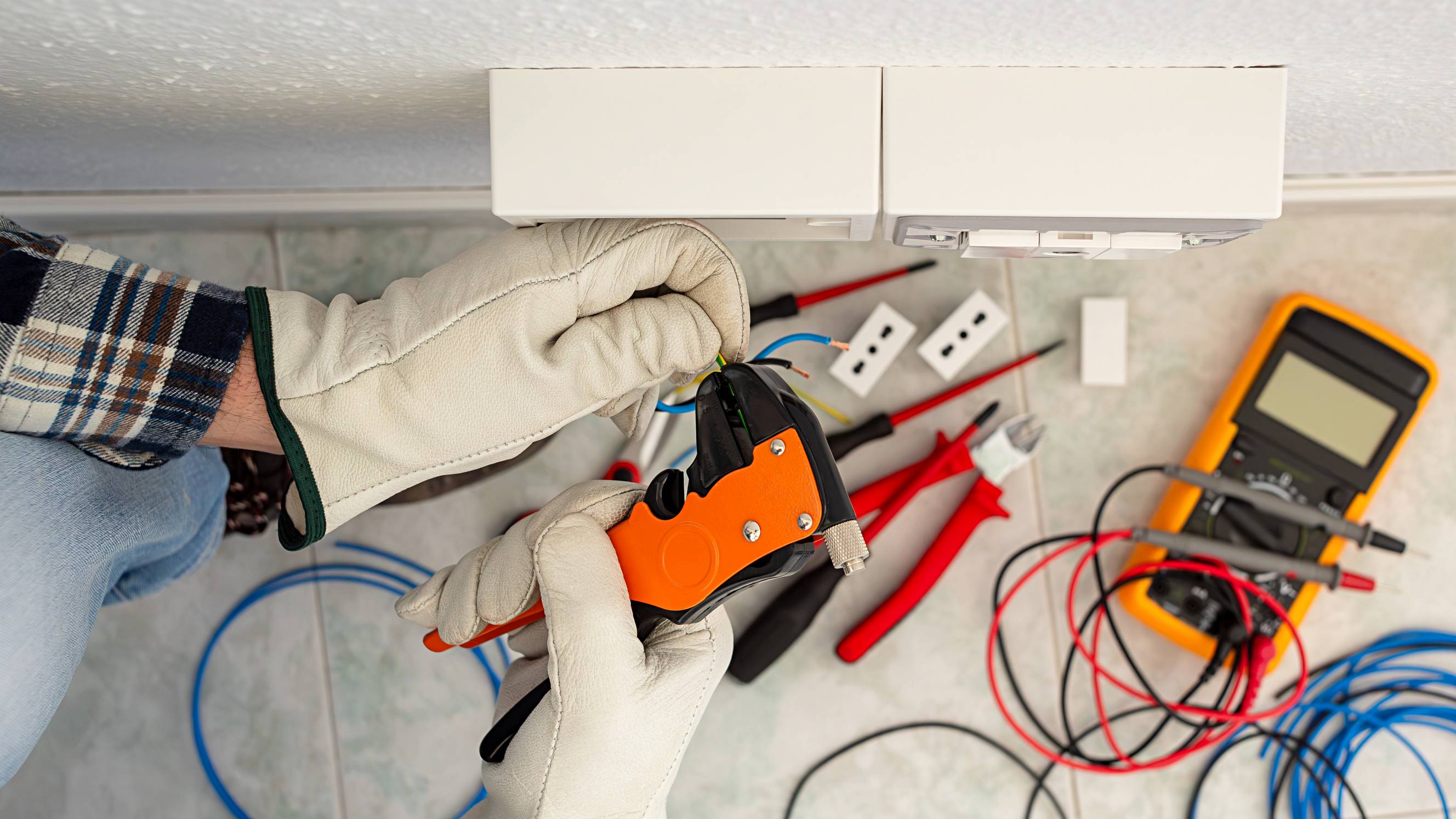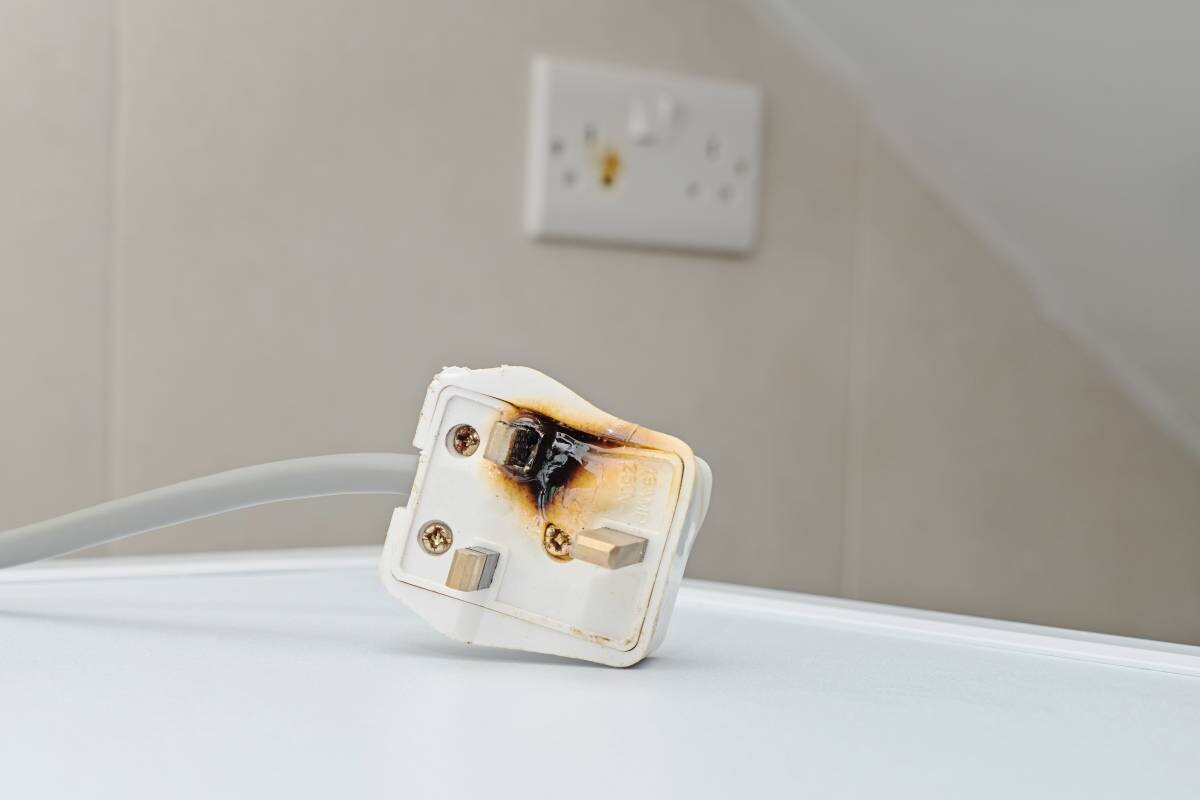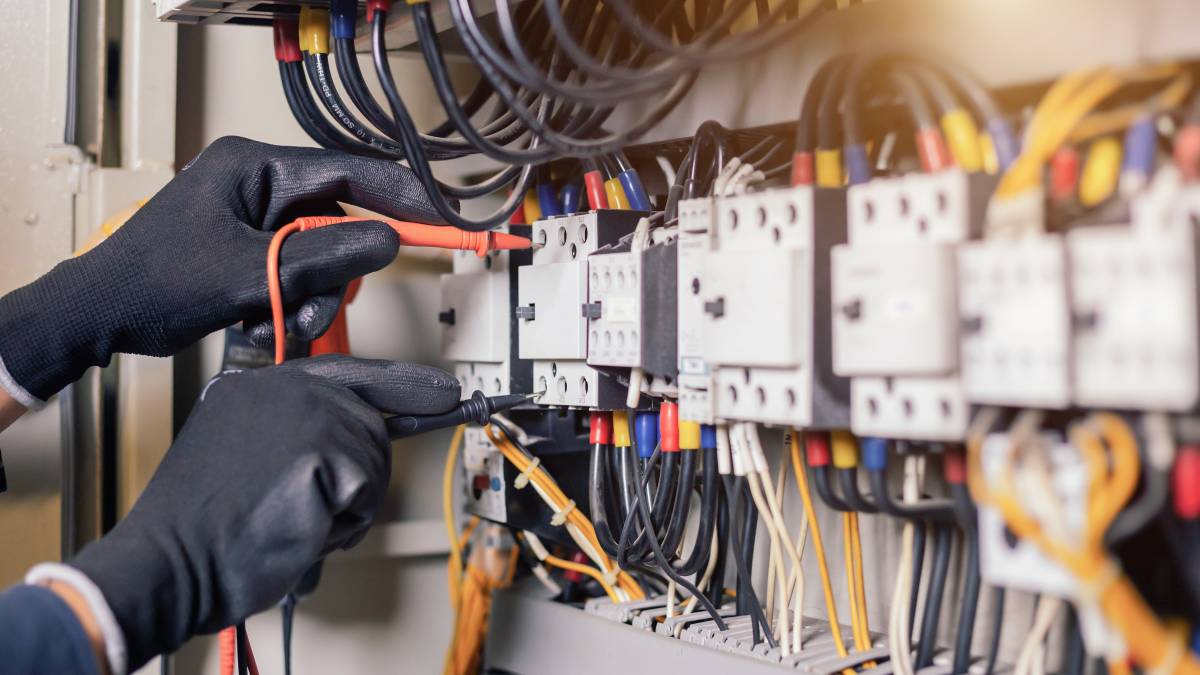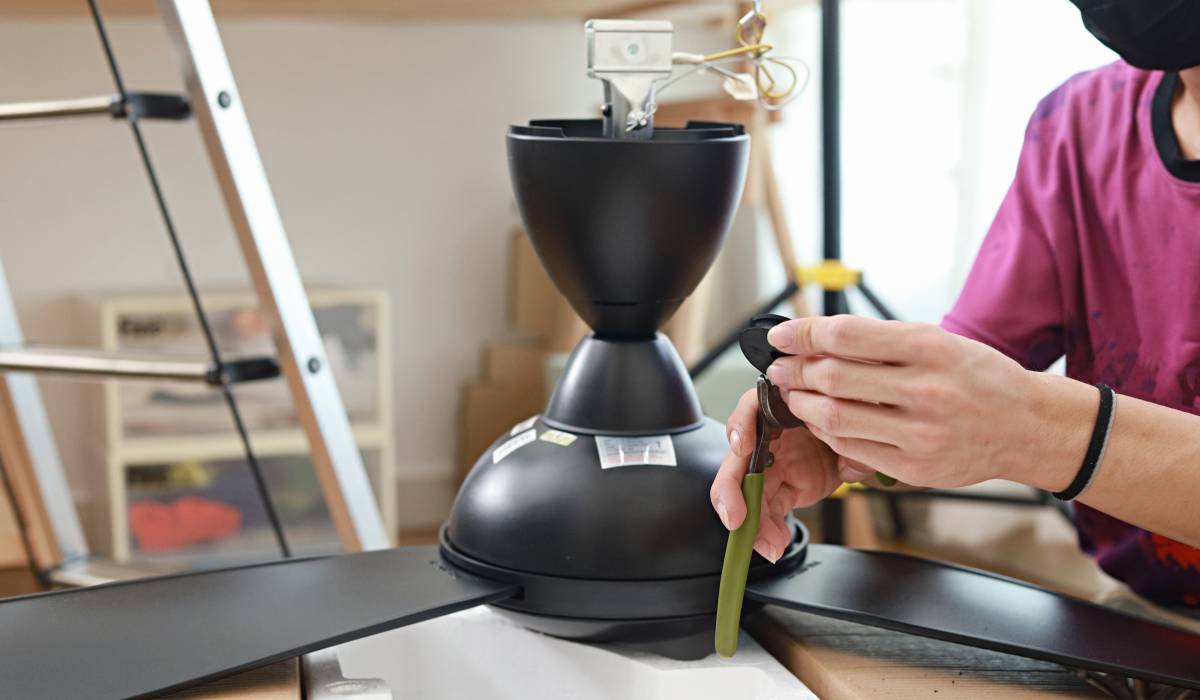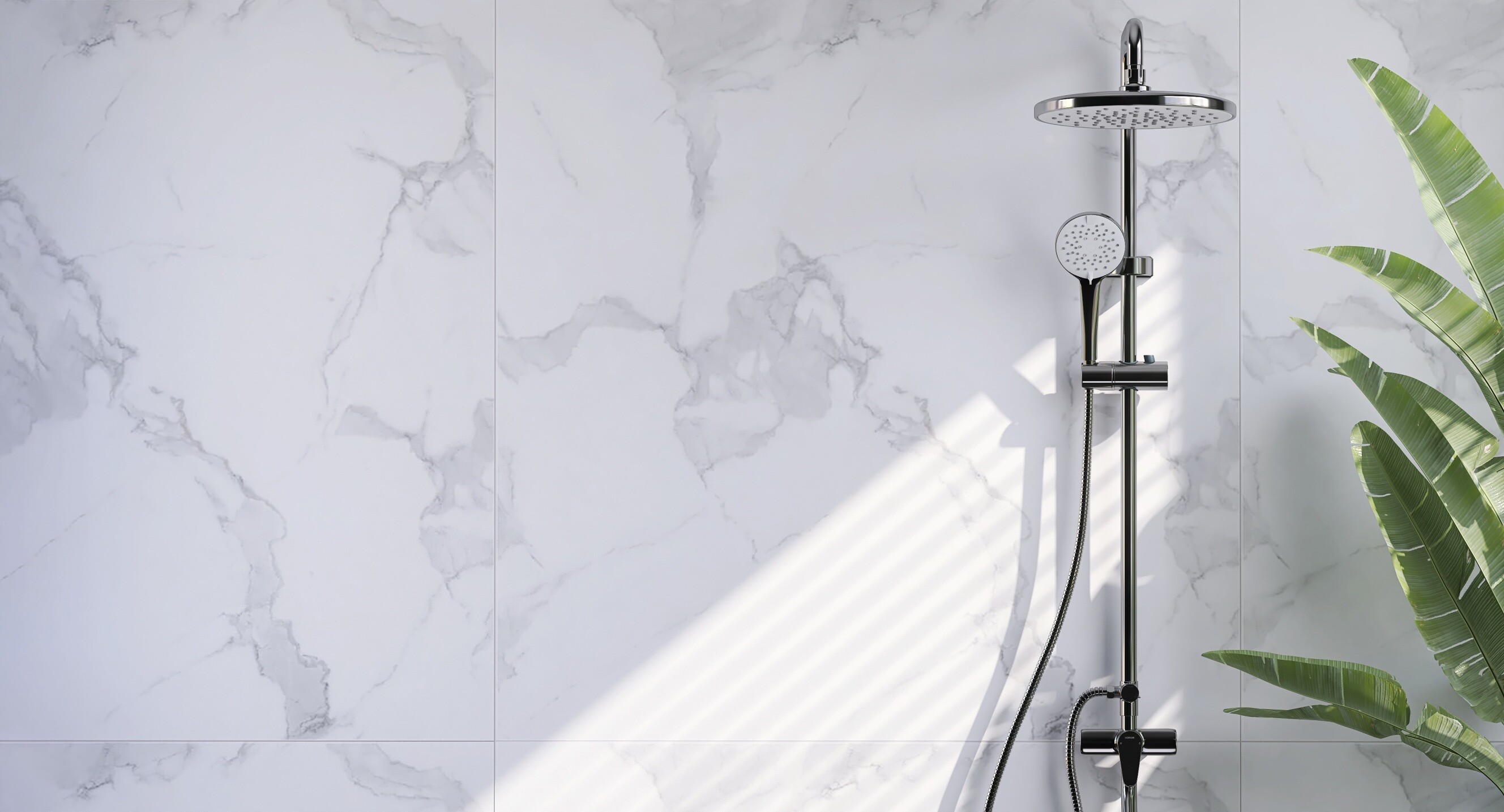
- Home/
- Comparisons/
- Electric Shower Installation/
- Power Shower vs Electric Shower
Power shower vs electric shower: What’s the better choice?
Comparing power and electric showers in terms of water pressure, heating method, and more.
Published on
Key Facts
A power shower is a shower system that uses a built-in pump to increase water pressure and flow rate, making it ideal for homes with low water flow.
An electric shower is a shower unit that heats water instantly with an internal electric element, providing hot water on demand without needing stored hot water.
Did you know that a typical eight-minute shower can use over 72 litres of water? With water efficiency being a major concern for Aussie households, picking the right shower setup is key to avoiding common bathroom renovation mistakes and creating a space that’s both practical and enjoyable.
Whether you’re weighing up a power shower vs electric shower, or just trying to make the most of your bathroom renovation, this guide will break down the differences between the two shower systems and help you decide which is the right fit for you.
What is a power shower?
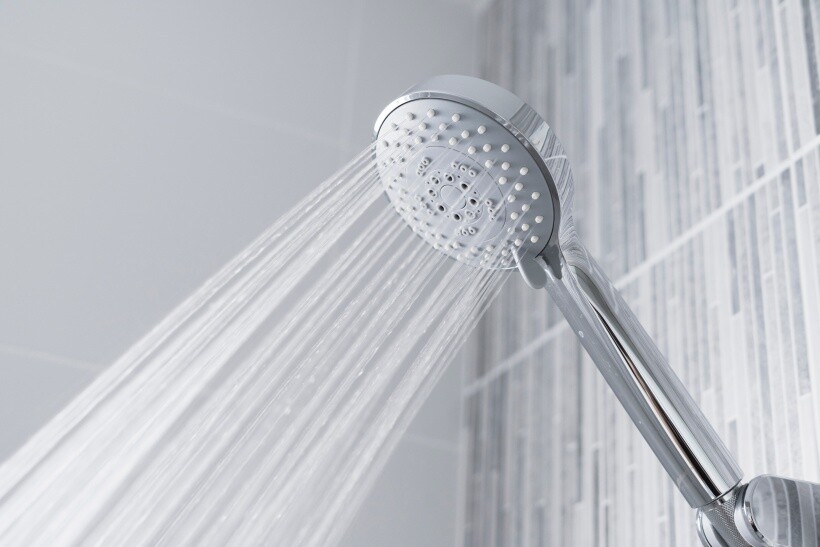 Clear water streams from a chrome handheld power shower fixture. (Source: iStock)
Clear water streams from a chrome handheld power shower fixture. (Source: iStock)
A power shower is built to deliver a stronger, more refreshing water flow, ideal for those who enjoy a high-pressure shower. Unlike basic shower setups, it blends hot and cold water from your home’s plumbing and uses an internal pump to boost the pressure, making it a great choice for homes with naturally low water flow.
This enhanced pressure has made power showers a popular feature in bathroom design trends that focus on creating a spa-like atmosphere at home. However, because it needs both hot and cold water connections as well as a power source for the pump, installing a power shower often requires professional expertise.
What is an electric shower?
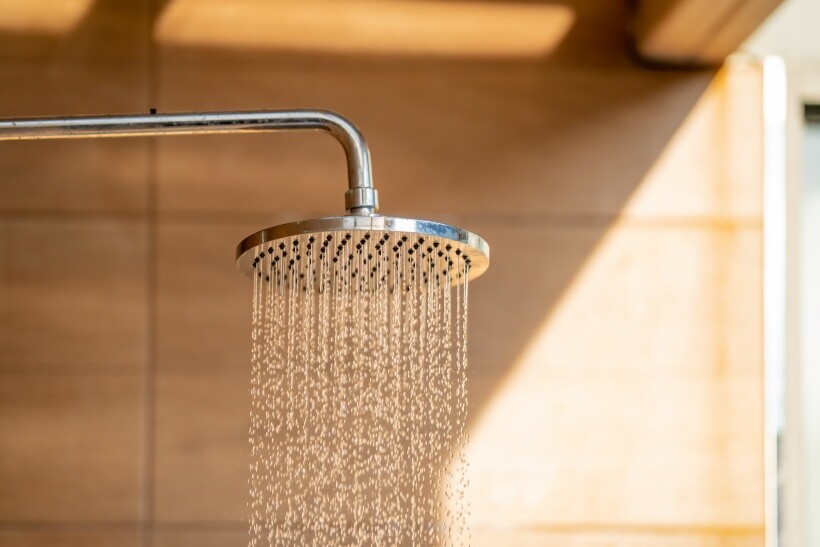 An electric showerhead creates a relaxing waterfall effect. (Source: iStock)
An electric showerhead creates a relaxing waterfall effect. (Source: iStock)
An electric shower heats water instantly as it flows through the unit, drawing only from the cold water supply rather than using preheated water from a boiler or hot water tank. This setup makes electric showers convenient and energy-efficient since they only heat the water you need at the moment, ensuring you’ll always have a warm shower.
If you’re adding an electric shower to your bathroom renovation checklist, you’d benefit from a simple installation process, as they don’t require a connection to a hot water supply. Instead, they only need access to cold mains water and an electrical connection, making them an ideal option for bathrooms with limited plumbing.
Electric shower vs power shower: What are their key differences?
Now that you have an overview of each shower system, let’s explore the difference between power shower and electric shower to help you decide which is best for your bathroom upgrade.
In terms of power and water pressure
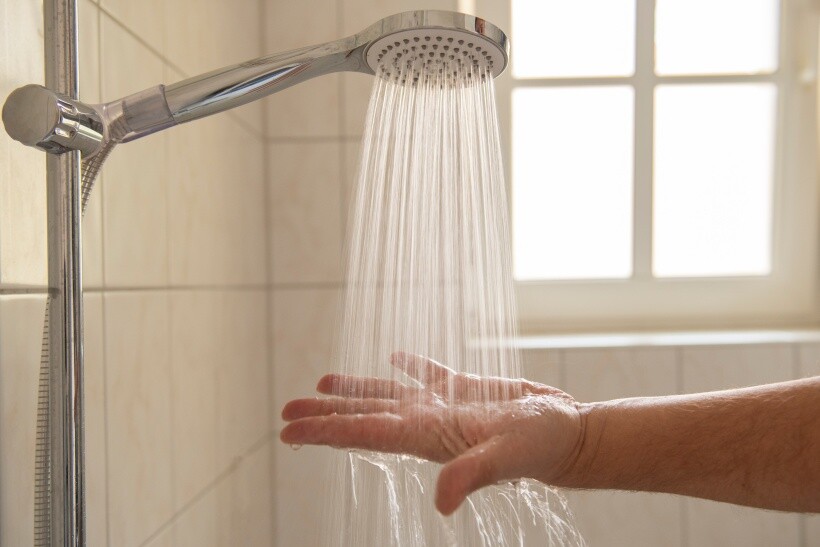 Testing water temperature and pressure under a handheld power shower. (Source: iStock)
Testing water temperature and pressure under a handheld power shower. (Source: iStock)
When it comes to water pressure and power, power showers and electric showers offer different showering experiences.
A power shower includes a built-in pump that boosts water pressure, making it ideal for homes with low water pressure. This means a stronger, invigorating flow through the shower head, transforming a basic shower into a refreshing experience.
An electric shower, on the other hand, doesn’t boost pressure. It heats water directly from the mains supply, which is the main water line that brings water into your home. This type of shower relies on the pressure already provided by this main water source, so the flow tends to be gentler.
In terms of water supply
When it comes to water supply, power showers and electric showers differ in how they source and heat water.
A power shower draws both hot and cold water from storage tanks, such as from a hot water cylinder, mixing them to reach the desired temperature for your shower. This setup relies on an existing hot water system in your home.
In contrast, an electric shower works independently of the home’s hot water supply, drawing cold water directly from the mains supply or the main water line that enters your home. It heats this cold water instantly as it flows through the unit, allowing for hot water on demand.
For safety and performance, regular electrical inspection testing is recommended, especially since both types require an electricity supply to operate.
In terms of compatibility with boilers
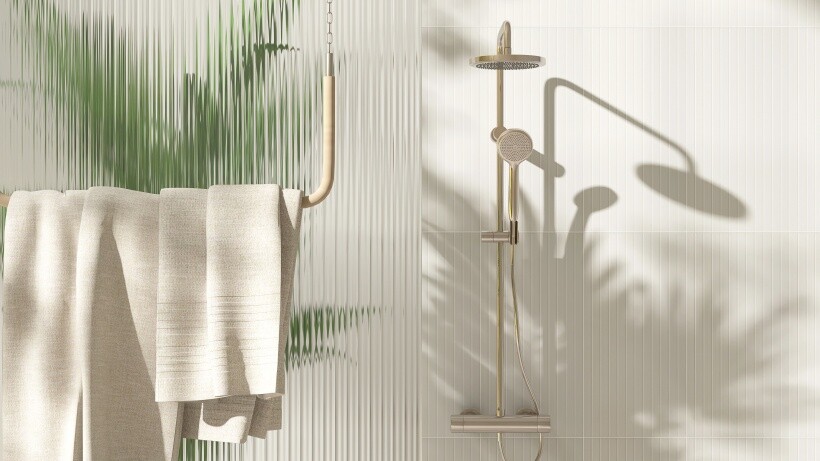 A minimalist electric shower design with clean lines and warm beige accents. (Source: iStock)
A minimalist electric shower design with clean lines and warm beige accents. (Source: iStock)
When it comes to compatibility with boilers, power showers and electric showers are suited to different setups.
Power showers are designed for homes with low-pressure systems, like a gravity-fed system, which uses a storage tank to provide hot water. They include a pump to boost water flow, but this feature makes them unsuitable for combi boilers, which are high-pressure systems without a tank. Using a power shower with a combi boiler can risk over-pressurising the system.
Alternatively, electric showers are compatible with most boiler types, including combi boilers, because they heat water independently, without relying on a storage tank or the boiler’s hot water supply. This makes electric showers a flexible choice for nearly any home setup.
In terms of their heating method
Power showers and electric showers each use unique heating methods that affect how water is delivered and heated during a shower.
Power showers are connected to both hot and cold water supplies. They take pre-heated water from the hot water tank and mix it with cold water, allowing you to adjust the temperature to your liking. This mixing process ensures a consistent, comfortable shower temperature but relies on your home’s existing hot water supply.
In contrast, electric showers operate independently of your hot water system, drawing in cold mains water directly from the main water line that enters your home. Inside the electric shower unit, an internal heating element heats this cold mains water instantly as it flows through. This means you have hot water on demand without needing a hot water tank.
In terms of cost
When upgrading your shower as part of a new bathroom cost, understanding the differences between power showers and electric showers can help you plan effectively.
Power shower units typically range from $200 to $1,000 or more, depending on the brand and features, with installation costs ranging from $500 to $1,500. This type of shower requires both a hot and a cold water supply, and is ideal if you’re looking for a more luxurious, high-pressure option.
On the other hand, electric showers tend to be a more budget-friendly option, with units costing between $100 and $300, plus installation costs around $200 to $500. Electric showers heat water on demand, making them compatible with various types of shower setups and reducing the need for extensive plumbing modifications.
In terms of installation requirements
When it comes to installation requirements, power showers typically demand a more involved setup due to their need for both hot and cold water connections and an electrical supply to power the pump. This complex installation often includes connecting to the home’s existing water heater, which may also involve water heater repairs to ensure compatibility. For this reason, it’s highly advisable to seek professional plumbing assistance when installing this shower system.
On the other hand, electric showers require only a connection to the cold mains water supply and an electrical hookup, which simplifies the process. While this may seem like a straightforward approach to shower head installation, it’s always a good idea to call in a professional. This helps you avoid safety issues or costly mistakes and ensures the job is done right, giving you peace of mind as you upgrade your bathroom.
Book a professional power or electric shower installer on Airtasker
Thinking about upgrading to a power shower or an electric shower? The choice often depends on your home’s plumbing setup and what suits your lifestyle best. If you’re refreshing your bathroom or starting from scratch, it’s important to get the right system in place.
Don’t risk a dodgy DIY job, post a task on Airtasker and let a qualified tradie handle it. From connecting your electric shower to the mains to sorting out the plumbing for a power shower, Airtasker makes it easy to find reliable, local experts who’ll get the job done safely and professionally. Relax and enjoy your new shower knowing it’s installed perfectly!
Power shower vs electric shower
| Power Shower | Electric Shower | |
|---|---|---|
| Power and Water pressure | Built-in pump boosts water pressure for a stronger, invigorating flow; ideal for homes with low water pressure | Relies on existing mains pressure, resulting in a gentler water flow |
| Water Supply | Uses both hot and cold water from storage tanks; requires a hot water system in the home | Draws cold water directly from the mains, heating it on demand for immediate hot water |
| Compatibility with Boilers | Suitable for gravity-fed systems; not compatible with high-pressure combi boilers | Works with most boiler types, including combi boilers, as it heats water independently |
|
Heating Method |
Mixes pre-heated water from the hot water tank with cold water to reach desired temperature |
Heats cold mains water directly through an internal heating element, providing hot water instantly |
|
Cost |
Generally higher, with units ranging from $200 to $1,000 and installation around $500 to $1,500 | More budget-friendly, with units between $100 and $300, and installation around $200 to $500 |
|
Installation Requirements |
Requires both hot and cold water connections and a pump, typically needing professional installation |
Requires a cold mains water and electrical connection, and best to hire a professional to ensure safety and avoid mistakes |
FAQs on power and electric showers
Power showers are ideal for homes with low water pressure due to their built-in pump, though extremely low pressure may still affect performance. Consult a plumber to assess your specific situation.
Yes, you can replace an electric shower with a power shower and it may enhance your shower experience, as long as your plumbing system supports the increased water flow and pressure and includes a separate hot water tank.
It is highly recommended to have a qualified plumber to conduct a shower installation especially for complex power showers to ensure safety, proper performance, and compliance with water and electrical regulations.
Find electric shower installers, fast
Post a task
Related price guides
Related articles
